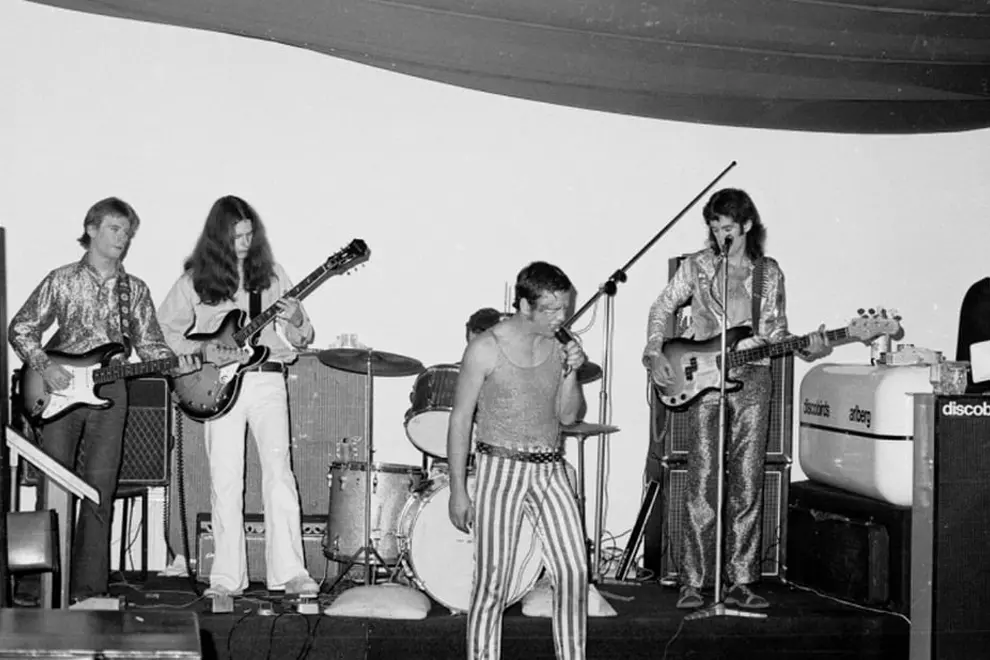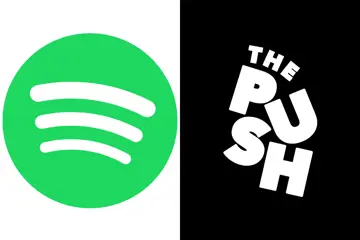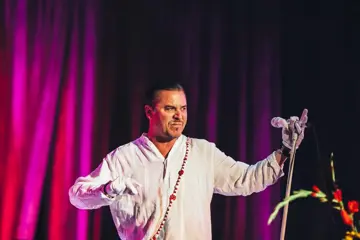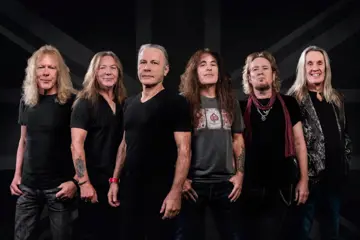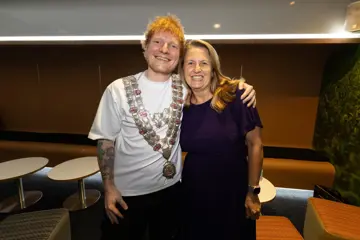It’s one of the rules of rock: always get there early to see the support act because you never know who you might discover.
Fifty years ago today, Ross Wilson had a gig at Melbourne Uni. The singer had enjoyed and endured a frantic few years, with Daddy Cool delivering the biggest Australian single and album of all time – Eagle Rock and Daddy Who? Daddy Cool. Inspired by what he’d seen during Daddy Cool’s American tour, Wilson started a new band, Mighty Kong, between DC incarnations. “We wanted to become a rock band playing modern music,” he explained.
Wilson had never heard of the night’s support band but arrived early and decided to check them out. He recognised guitarist Peter Inglis from The Captain Matchbox Whoopee Band, and the other guitarist, Peter Starkie, also looked familiar.
“Anyway, they started playing all these funny songs, and I just thought it was hilarious,” Wilson recalls. “They were very rough, which I kind of liked, too. They had this incredibly rough edge compared to everything that was going on. But the riffs and all that stuff came through the roughness.
“It was like they didn’t care. They were just having a good time and sticking it up people’s noses with these silly songs.”
“It was everything I liked – humour and musical power. They weren’t taking themselves seriously – they were taking the piss out of the established scene.”
Wilson found out that the bass player, Greg, wrote the songs, so he and Mighty Kong guitarist Ross Hannaford wandered backstage for a chat. As Hannaford gave Freddy, the drummer, a Camel non-filter cigarette (“I thought this must be success!” the drummer would later reflect), Wilson offered the bass player a publishing deal.
Don't miss a beat with our FREE daily newsletter
For Greg Macainsh – who bought Eagle Rock the day it was released – it was a night he will never forget. “I don’t think I was nervous, but I was eager; I was excited. I wanted to meet Ross Wilson, and I wanted to meet Ross Hannaford; though it was more playing with them, that was much more exciting than meeting them. To be able to stand backstage while they played, that was great.”
The young band had done their first gig three months earlier, but July 20 was really ground zero, the day that everything changed. They had met their mentor. And though many changes would soon come, they were on their way.
Fifteen months after that fateful meeting at Melbourne Uni, the band, Skyhooks, would release their debut album – produced by Ross Wilson – and the Australian music scene would never be the same.
That album, Living In The ’70s, would spend 16 weeks at number one, sell more than 250,000 copies – five times what the Daddy Cool album had sold – and save the fledgling Mushroom Records from bankruptcy.
After seeing that Melbourne Uni show, Wilson rarely missed a Skyhooks gig, fondly remembering how they polarised the audience: people either loved them or hated them.
James Black saw the band in Adelaide when they supported Daddy Cool. The keyboards player, who would later join Mondo Rock, told Wilson he didn’t like them. “They really rubbed him the wrong way; they were too brash.
“Skyhooks shocked people – some people were shocked in a good way, some people didn’t like it.”
Australia’s first King of Pop, Normie Rowe, also took a while to warm to the band. “It took me a good three or four months to really come around. But when the penny finally dropped, they really sucked me in, and I thought, ‘Wow, this is really something.’
“They had that live spontaneity that Daddy Cool had, something that had been missing in Australian rock ’n’ roll for quite a while. They were out there doing it for the audience, not for themselves.”
Just as Harry Vanda and George Young were able to mentor AC/DC, imparting the lessons they’d learned in The Easybeats, Ross Wilson became the Hooks’ Yoda. “I was very interested in shielding them from all the bad things that had happened to Daddy Cool, so I was passing on as much information as I could.”
Unhappy with his own publishing deal, Wilson started a publishing company, Doo Dah Music (with the name inspired by a line in Camptown Races, one of the first songs published in sheet music, as well as Wilson’s love of doo-wop). “I had this 50-50 deal, and I started to think, ‘Why does it have to be 50-50?’ That was the standard deal that everybody pretty much did. Some were worse. I thought, well, I’ll do one that’s different – 70-30. And that induced Greg to come on board.
“It was around that time that things started to change, and I’m glad to say that I had a part in it.”
Not long after the Melbourne Uni gig, Peter Starkie decided to leave Skyhooks – to join a band backing a stripper in Western Australia. He was replaced by his younger brother, Bob.
After a few more gigs, Peter Inglis – who didn’t like the band’s glam persona and resented having to dress up – also quit and was replaced by Red Symons. And singer Steve Hill exited after the Sunbury show the following January, which led to the band installing Shirley Strachan as lead singer.
After Shirl’s arrival, Wilson helped the Hooks land a deal with Mushroom and convinced Michael Gudinski that he should produce their debut – even though he’d never produced an album before.
“Michael and the band had a leap of faith and let me do that. And it all turned out great. Mushroom hadn’t had many hits at the time, and they were struggling financially, so when Skyhooks went through the roof, it really laid the foundations. They were able to then spend money and sign all these other acts and become the force that they became.”
Wilson remembers that Gudinski was a little nervous when the band entered the studio. “He said, ‘Now, how long do you think it’s gonna take?’ And I said, ‘Ah look, I don’t know, I’ve never produced a record in my life. And I don’t wanna have to stick to a really tight budget because it could fuck things up.’”
Gudinski suggested 100 hours; Wilson said: “Yeah, but don’t hold me to that.”
The band ended up spending 200 hours in the studio, and Living In The 70’s cost $13,000.
“It turned out really well because Mushroom didn’t interfere in any way.”
In a career packed with highlights – including chart-topping hits with Daddy Cool and Mondo Rock, writing Bop Girl, having his songs covered by everyone from John Farnham to Joe Cocker and The Wiggles, as well as being inducted into the ARIA Hall of Fame twice – Wilson still looks upon recording Living In The 70’s as “one of the big events of my life”.
“We came out with this record that none of us could see how we got. The creative juices were flowing so much.”
Six of the album’s ten songs were banned – Whatever Happened To The Revolution, You Just Like Me Cos I’m Good In Bed, Toorak Cowboy, Smut, Hey What’s The Matter and Motorcycle Bitch – which didn’t surprise Wilson. “I expected it. It had happened to me with Daddy Cool’s Sex, Dope, Rock ’n’ Roll: Teenage Heaven album [in 1972].”
Gudinski, for his part, was quick to spot a marketing opportunity. “When all the songs got banned, I thought, ‘This is fantastic. If they want the record, they’re gonna have to buy it; they’re not going to hear it all over the radio.’”
The Skyhooks songs shattered the cultural cringe and showed there was a massive market for local music, that “you could get paid for just bein’ a freak”.
“It was the start of the whole acceptance of Australian music that had a local identity,” Wilson says.
Wilson loved seeing his protégées rewrite the record books, and he ended up producing their first three albums. “The Skyhooks thing never became a bugbear for me; I loved their success. I have no hesitation in saying that I was the sixth Skyhook, just like George Martin was the fifth Beatle. I was in there all the way.”
With Living In The 70’s still at number one, Skyhooks returned to the studio to make their second album, Ego Is Not A Dirty Word. But the studio manager wouldn’t let them in – because the bill for the first album had yet to be paid.
Gudinksi confirmed that story, explaining that Mushroom would not have survived if not for Skyhooks.
“I think at one stage, the Hooks actually lent us money,” Gudinski revealed. “It was ludicrous running an Australian label back then. I mean, you could have a gold record and lose money. The Skyhooks phenomenon was really good timing because Mushroom Records really needed it. Mushroom was started on the smell of an oily rag and naïve guts and determination. And even though we’d had a few successes already, we were losing money and in financial trouble.
“If an accountant had come and looked at Mushroom before Skyhooks succeeded, they would have shut it down and said, ‘What are you doing? Are you crazy?’ That’s where the faith paid off. But at the time, everyone thought Mushroom was making a fortune. All we were doing was paying off all the debts that we had before Skyhooks happened.”
Fifty years after discovering Skyhooks, Wilson is still making music, recently releasing an EP called She’s Stuck On Facebook All The Time, which recalls the fun days of Daddy Cool.
And still flying the Skyhooks flag is guitarist Bob “Bongo” Starkie, whose Skyhooks show plays regularly in Melbourne, with Laura Davidson as lead singer.
Though he was not there, Red Symons has wry memories of the Melbourne Uni meeting that set up the Skyhooks and forged the Wilson-Macainsh partnership – an association the guitarist would later resent, believing the producer favoured Macainsh’s songs in the studio (a claim both Wilson and Macainsh deny).
“There was something very circumstantial, very fateful about that night,” says Symons, who was then the guitarist in a band called Scumbag.
“We had been booked to do a gig in the buffeteria at Melbourne Uni, but I was doing a play at the Pram Factory, so we cancelled the gig and another band is picked to do it, and it’s … the Skyhooks.
“And Ross Wilson spots them on this particular night and is astute enough to realise that even though the band probably sounded like shit, there was this germ of something pretty interesting.
“The irony in the situation is that I am the guy who created the circumstance. I mean, of course, if none of this had happened, Ross Wilson might still have discovered the Skyhooks or somebody else might have, but I was the start of this relationship between Wilson and the Skyhooks – without even being there.
“It was a very curious twist of fate. The band profited from a situation I inadvertently created.”
Symons, Macainsh and Wilson are all featured in the documentary Ego: The Michael Gudinski Story, which will have its world premiere next month.

